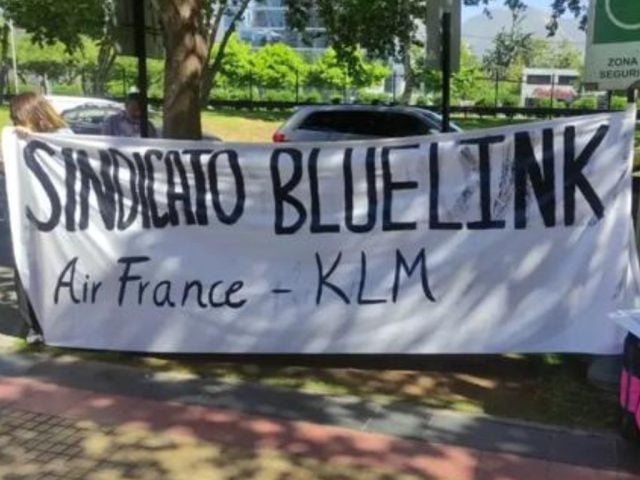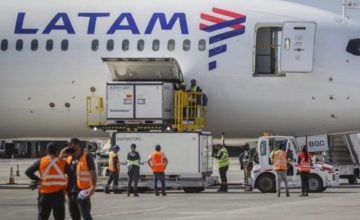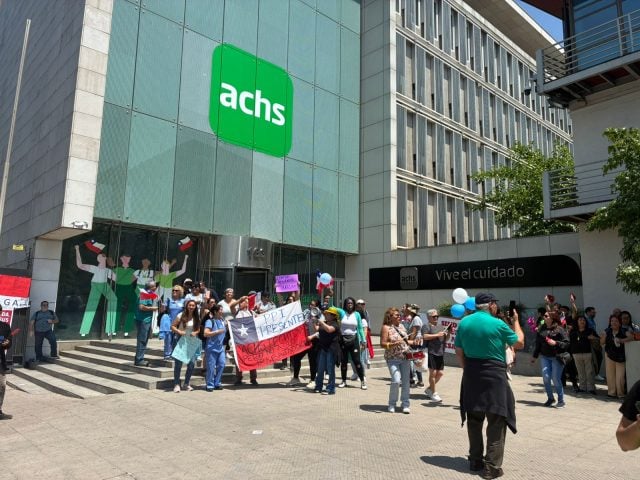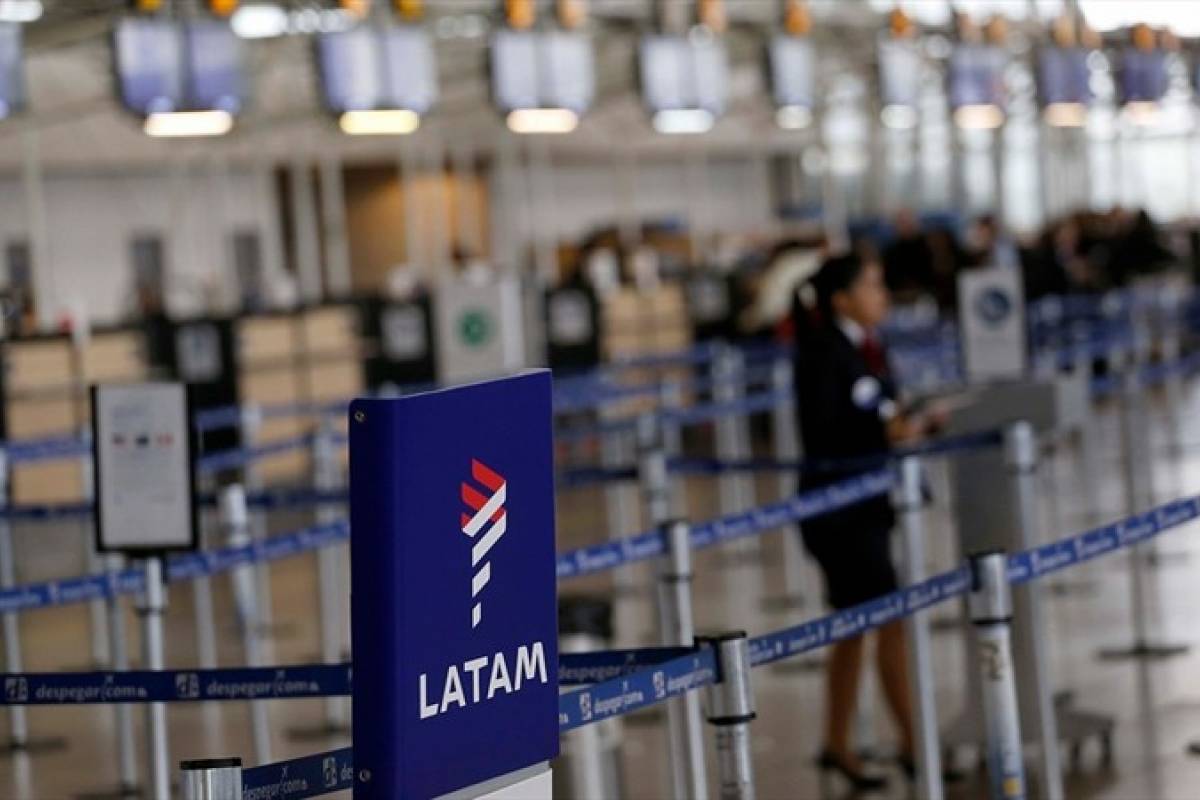Original article: Sindicato de BlueLink anuncia huelga tras rechazar última oferta de la empresa
On Monday, November 3, the union of BlueLink —a call center serving airlines Air France and KLM— announced its decision to initiate a strike after voting to reject the company’s latest offer. This step aims to continue negotiations as the administration’s proposal was deemed insufficient.
The union began its first collective bargaining process on September 16, engaging 66 workers and reaching over 150 participants, representing more than half of the company’s workforce. The workers’ proposal, developed over several months, sought improvements in salaries, work hours, union representation, benefits, and work-life balance. However, the company only offered the legal minimum, which failed to address their demands.
In an interview with El Ciudadano, Javiera Nicolaides González, president of the BlueLink International Chile Workers’ Union, stated that from the beginning of negotiations, the company attempted to challenge the processes through various means, including questioning the classification of minimum services. This led the company to file a complaint with the National Labor Directorate, which has since been resolved, allowing negotiations to progress.
Furthermore, Nicolaides pointed out that the initial response from the company included no improvements, as they merely proposed the legal minimum along with historic benefits that already existed and must be offered by law. “For instance, if we request an increase in the meal allowance, the company is obliged to at least maintain the current allowance. In this respect, they complied on some points but not on others, necessitating our own challenges,” she explained.
One of the contentious points involved the company’s traditional benefit of a 50,000-peso gift card in December to help cover holiday expenses. Despite being a long-standing benefit, the company had not included it in its proposals.
The union president elaborated that during the negotiation process, several disputes arose regarding what benefits were considered historical and which were not. She noted that the so-called “dispute and complaint period” extended longer than anticipated due to delays from the Labor Inspection, which postponed the resolution concerning the legality of the negotiations and the company’s response. As the deadline for Bluelink’s final offer approached, the company finally agreed —albeit belatedly— to resume negotiations.
Subsequently, the union decided to delay the strike vote by a week to give the company additional time to review their requests. However, Nicolaides indicated that despite this extension, the company’s latest informal offer did not include any improvements, even for proposals that would not require significant resources, one of the main excuses put forth by the company.
“There were several improvements that pertained to organizational or logistical aspects, which wouldn’t cost anything. It’s really shameful that after nearly two months there has been no willingness to discuss improving conditions that have been requested for years,” she stated.
Main Demands of the Union
Among the union’s main demands is a raise in the base salary, which currently aligns with the minimum wage for many workers. “This significantly affects our mobility, meal allowances, bonuses, etc. It is critical because it also impacts pay when someone is ill, which is quite common in this job, especially due to health issues, as we constantly deal with very difficult public interactions,” the union president explained.
Another request focuses on increasing the December bonus, which has traditionally been 50,000 pesos. The workers are requesting a higher amount to cover expenses associated with the festive season.
The third point relates to working hours. As a call center, employees must remain online for extended periods. In Bluelink’s case, they operate under a 40-hour weekly regime, but work can be distributed over five days with two days off or, conversely, six days with one day off. Nicolaides noted that the latter model often applies during weeks with mandatory holidays, which effectively prevents workers from genuinely enjoying a day off.
Another related point is that employees are asking to maintain the same shift throughout each week. For example, they want to avoid having one day at 10:00 a.m., two at 3:00 p.m., and others at 8:00 a.m., with schedule changes occurring weekly.
“As you can see, these changes may not seem very significant to the company, but they greatly impact the workers’ ability to balance work and personal life. And another important aspect is that no one should be scheduled to work more than five consecutive days, as it’s common here to have six consecutive workdays. It’s not the same calendar week, of course, but for example, working Sunday and then from Monday to Friday of the following week with varied hours,” added Nicolaides.
Another point raised by the union pertains to the air travel benefit offered by the company after completing one year of service, allowing workers to purchase a ticket from Air France for just the taxes. However, this benefit is subject to availability, which has left some employees stranded for days, particularly in Paris, without coverage for accommodations or flexibility in returning to work. Consequently, the union aims to improve the conditions of this benefit—ensuring tickets are confirmed and not contingent on availability—and expand its reach beyond spouses and children to include other relatives or close individuals.
Nicolaides also mentioned that the union aims to include two additional significant improvements: the creation of voluntary retirement slots—allowing workers to resign with the same indemnification as in a dismissal for business needs—and the compensation of union work hours. Currently, these hours are funded by the union itself, even though the law allows for the employer to cover them. She explained that this expense weakens the organization’s finances and hinders its ability to allocate resources for legal advice and other initiatives to improve working conditions.
Regarding negotiations, the union indicates they will pursue all avenues: “Our goal is to achieve improvements and basic essentials anew. In this regard, we hope to engage in mandatory mediation with the Labor Inspection, and we are fully open to all negotiation opportunities the company initiates. If we cannot finalize that mediation session or reach an acceptable agreement for both parties, we will certainly have to proceed with the strike,” explained Nicolaides.
Nicolaides acknowledged that not all demands may be fulfilled, but emphasized that even advancements that do not entail direct costs—such as organizational improvements or the possibility of remote work—would significantly enhance workers’ quality of life. She stressed that working in the call center is demanding and requires specialized training, as all personnel manage at least two languages and handle complex systems.
The union leader also emphasized that the company possesses sufficient resources to meet the demands, citing recent savings from the closure of an office floor and the end of night transportation service. “The issue is not money, but willingness,” she asserted, highlighting that they expect a salary increase commensurate with the demands and professionalism of the job.
In closing, Nicolaides urged workers to educate themselves, to not fear unionization, and to take advantage of the resources provided by the Labor Directorate, which generally supports workers.
“We are people providing a service, and we deserve fair compensation for that service. Negotiating is a necessity, and we hope that the welfare of everyone—both the administrative side of the company and the workers, and of course the passengers and clients—is always prioritized,” she concluded.










